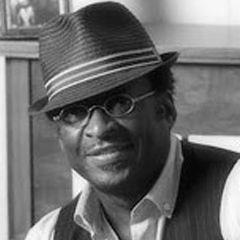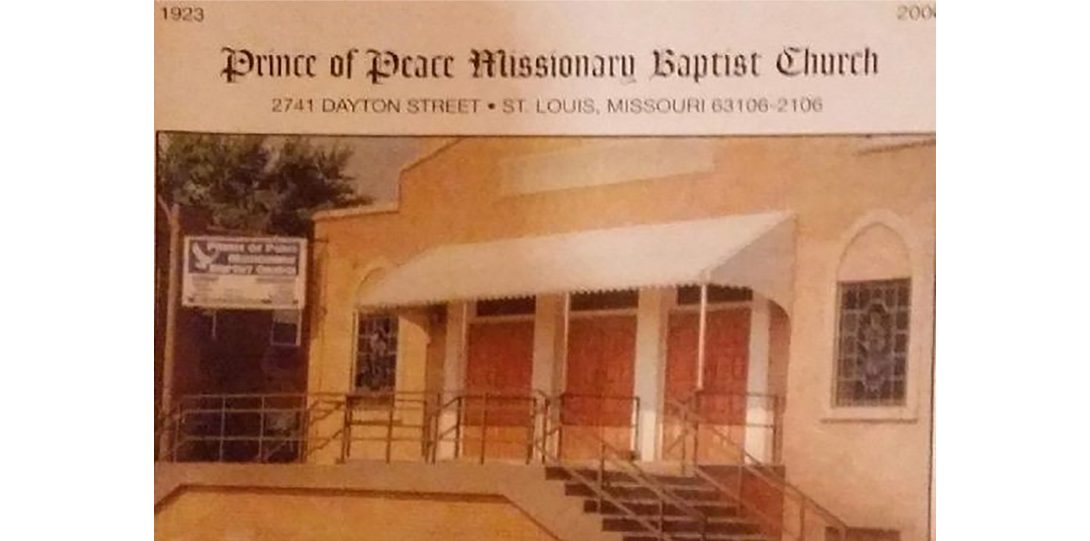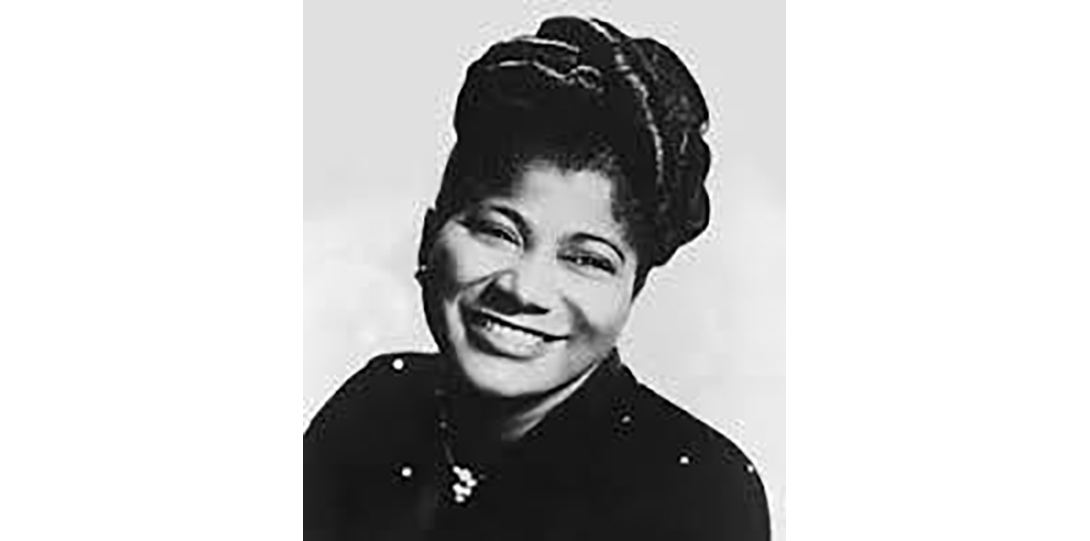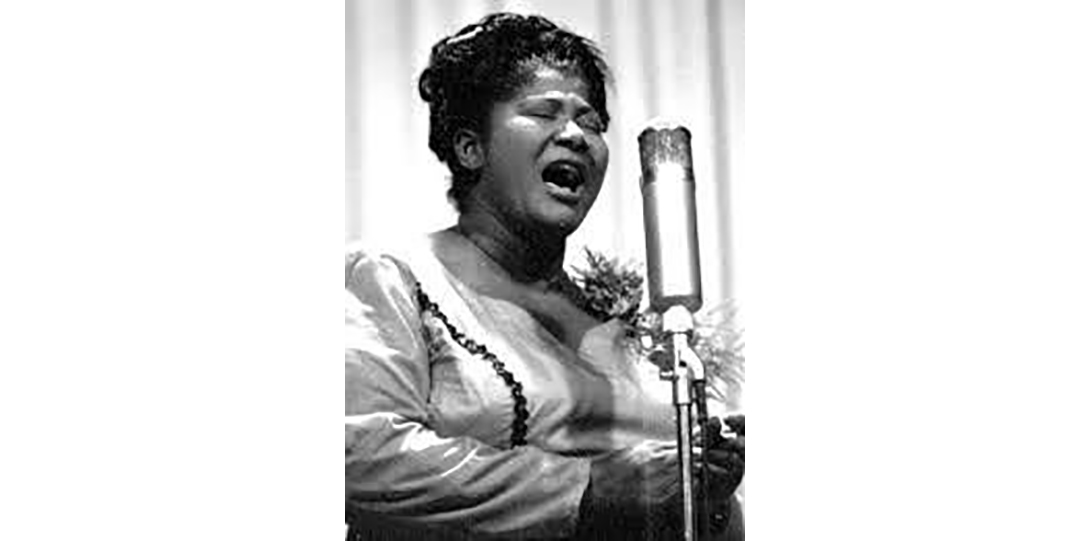Faculty Spotlight: Professor Johari Jabir
If there is one thing that Assistant Professor Johari Jabir wants to express, it is that all of his teaching and scholarship is influenced by his work as a musical artist. He enjoys using music as an epistemological frame in his courses, and he is also studying the Black Barbershop Quartet singing phenomenon at the turn of the century; gospel blues tradition of the early and mid 20th century; the role of music and cosmology in the work of James Baldwin; and the Civil Rights protest songs of Nina Simone.
Jabir recently took part in an event to honor the great gospel singer Mahalia Jackson at Sixth Grace Presbyterian Church. On the surface, it may seem he was there to simply accompany on the piano. Though on the contrary, this event was highly symbolic of his journey from a music-loving child to Black Studies artist/scholar/teacher.
In Fall 2015, Nicole NeSmith sat down with Professor Jabor to ask a few questions about his work and who he is outside of the classroom.
Image of Assoc. Prof. Johari Jabir Heading link

“By the time I became a teenager I started to read James Baldwin. The content of his writing, and the “way” he wrote was really reflective of my experience and so that opened me up even more.”
| Assistant Professor of Black Studies
Interview with Johari Jabir Heading link
What do you love about her [Mahalia’s] music? What is the personal aspect?
Johari Jabir: It’s the first music I heard when I was two. I was very arrested when I heard this music. While my mother was working my grandparents would keep me, and my grandmother played her music constantly. My grandparents took immediate notice to my liking of her music. And her music sounded just like the music that they played in the church I grew up in. I made that connection very early, but I also curious about how she sang, which mad me very curious about the world, and ideas. And that was my earliest intellectual formation. I know we think of Mahalia’s music and gospel music in general as exclusively theological, but for me I hear it as this testimony about humanity—testimony about her people which are my people which are black people; a testimony about the black struggle. So that was really the beginning of my intellectual journey.
Part Two of Interview Heading link
When did all the pieces start coming together?
Jabir: I sort of let it unconsciously take me there. I started taking piano lessons when I was eight. In the kind of working-class black community I grew up in there was a lot of music and a lot of opportunities to learn music. There was western classical, but there were also opportunities to learn from the elders. So I had both of those in a very concentrated way. I had a very driving music program in college. But it was actually in high school that my choir director encouraged me to audition for a college and to major in music. I hadn’t thought about that. And so I did that, and after college I became a professional church musician. But I always kept that music and that blues and swing sensibility I learned at Prince of Peace Baptist Church, which as a church of black southern migrants.
The music that Mahalia performed reflects the migration of black people from the south to the north. She herself was a southern migrant. My grandparents were southern migrants. And so that style was a really bluesy style, very gritty, sort of gut bucket but very elegant. That style is the sort of style that I learned to play. It was honky tonk, swing barrel house, Scott Joplin’s kind of music and rag time kind of stuff—that kind of blend of music. So the kind of music I learned was a mix of stuff like gumbo. I was really fortunate in graduate school to meet teachers who understood that for me, that music and its sensibilities were an epistemology, a black way of knowledge. Now, many years later, in my role as a performer of Ms. Jackson’s repertoire, it really does bring a kind of organic focus, this relationship between the performing artist, the scholar of black studies, and teaching (currently I’m teaching a course on the history of black music) and so playing this concert really does represent a full circle moment for me. I’ve never played a full concert of her music. It’s quite astounding actually.
Are there any songs that stand out?
Jabir: One of her biggest songs is “How I got over.” She sang, “How I got over” at the March of Washington. That’s probably the most recognizable. “He’s got the whole world” is very popular. I’ve also written about “Didn’t it Rain.” “Nobody Knows the Troubles I’ve Seen” really captures the “both/and” gospel blues that defies our tendency to draw strict lines between the secular and the sacred. She sings the dirge version first and mid-way through she “swings it out,” as my grandmother’s generation would put it.
Part Three of Interview Heading link

What kind of neighborhood did you grow up in?
Jabir: I grew up two blocks from my church, a black Baptist church.
Pretty much everybody in that neighborhood was a product of migration. In terms of the food, speech, and style it was a small diaspora in a Midwest city. It was very supportive of me as a kid, supportive of my curiosity and how I could use my mind and how I could use my talent as a musician. Musically in my book (not published yet), this concentration of so much music, wisdom and spirit exemplifies what I call a “black communal conservatory.” So you were nurtured in this network of musical teachers and they went to the church and they taught in the schools. You got skills that were equal to someone coming from a middle class family. You got that but you were also taught the oral tradition in terms of what and who had come before you. It was very communal. One project that I’m involved in now that I’m very proud of is that I’m leading the archive and oral history effort for the National Convention of Gospel Choirs and Choruses that was established in 1933 by Thomas A Dorsey. He was considered the father of gospel music and was one of the people that Mahalia met after she arrived in Chicago. So when she started singing songs like “Precious Lord,” those were his songs as a composer. So he established in 1933 this convention and I’m doing the effort to establish an archive and oral history for the National Convention of Gospel Choirs and Choruses. Interestingly enough, I was a youth musician in that convention when I was 12.
Full circle.
Jabir: [Laughs] Yes. But that was just a part of our community. It was just a place of musical training that any kid in the community had access to.
You’re from St. Louis Missouri. A lot of us have learned about Pruitt Igoe.
Jabir: Yes, I grew up about two blocks away.
Did that inform how you grew up?
Jabir: I didn’t know it was “Pruitt Igoe,” and you didn’t acquire that way of seeing people in that black working class community. I knew people lived on Jefferson but I didn’t have a language that understood where people lived as “the projects.” You didn’t learn that in our church. I didn’t even know it was called the projects until about college. I knew we were all together for some economic reason, but there was so much love and affirmation that I didn’t acquire in the church that language of judgment based on class and upward mobility. That wasn’t how we lived in that neighborhood.
Is this something by curiosity you learned or did you know this through conversations with adults?
Jabir: My family, church, and neighborhood was rich network of black working class people. There were small businesses, and the teachers, mostly black women, taught us that we were “somebody.” I saw many people coming to rehearsal in their uniforms. “Well I know that’s the bus driver’s uniform.” I mean, we’re not naïve. For many of the elders, I could tell that the kind of labor they had done had taken a toll on their bodies. We also didn’t have meetings on certain nights that unions met. They were very engaged. But it wasn’t a sort of identification where they would take part in a union and call themselves activists. There were people who were identifiable as activists, such as the legendary Ivory Perry. But what was produced in the aesthetics of worship and music definitely affirmed our unique position in the world. By the time I became a teenager I started to read James Baldwin. The content of his writing, and the “way” he wrote was really reflective of my experience and so that opened me up even more.
What encouraged you to read this material?
Jabir: I just had a thirst. The preaching and the singing never pointed me toward at anything that was reducibly empirical. There was a sense of mystery and wonder that led me toward a deeper wisdom, and so at a very basic level I was seeking that. I’m very committed to exploration; even as a scholar I am a seeker. I think about that question a lot at this point in my life. Because so much of it seems accidental and also very deliberate, but I do firmly think that the kind of simplistic love in that church and that community just planted a seed. I use that term simple intentionally because there was never a pressure to be something.
So you didn’t know you were going to major in music?
Jabir: I didn’t know what I was going to do. I didn’t know.
But there wasn’t an expectation?
Jabir: There was an expectation to be responsible. In terms of my church, the basic, fundamental philosophy was treat people like you would like to be treated, but it was never status oriented. So I think the simplicity of that just opened me up. I’m closer to it now than I ever have been. I think for me that was huge.
So what kinds of expectations did you experience?
Jabir: My family, especially my grandfather didn’t want me to be sloughing off. But I didn’t get the message that I needed to be something because there was something wrong in being black or that I had to prove something to be black. That wasn’t there.
Do you think a lot of people feel the opposite?
Jabir: I don’t know that I think a lot…well, I think it’s really hard to talk about class in this society, so what happened to me was that that a very simple expectation was never attached to things and symbols and so I’m more inclined to be relational in the work I do rather than being something and acting like whatever people think that is. There was enough expectation of me as a loving human being. I knew what we were doing was black culture, but it was not a nationalistic blackness. It was unapologetic and was not about explaining anything. And again there were all kinds of black people and all kinds of assorted characters. No one was ever judged or ostracized.
How would you describe Fontbonne College, where you got your BA?
Jabir: I had been immersed in almost exclusively black contexts, and Fontbonne was the exact opposite. I think they were just newly admitting black kids.
Was it a conscious decision to attend a place like that?
Jabir: No, it really wasn’t. My choir director teacher said this school is looking for minority students. He said I was talented enough; I auditioned and was accepted. In that sense my surrounding community could have done a bit of a better job in preparing me for life beyond high school. I would have applied out of automatic pilot, I would have gone to our high school counselor. But my choir director presented the possibility, and I got some money, and I thought ‘Ok, I guess this is what I’m supposed to do.’ My voice teacher was this well-read, well-traveled black woman who was very wise—and she knew I wasn’t their typical student—and so at every turn in my education there has been a teacher who understands the kind of unconventional road that some people take. That really sustained me and it’s a gift I try to offer the students I work with.
Were you expecting to make your career about performance or were you always interested in the academic side?
Jabir: Yes, I was, but for me that entailed arranging, composing, and conducting. My voice teacher always had graduate school on my radar, so that wasn’t a foreign idea. I may not have done it all in the exact chronology, but she was right. My voice teacher was, as many voice teachers can be, she was like a guide. Her approach wasn’t just that you walk into a studio and sing, but she taught me how to take a piece of music and learn the social/cultural context, historical context, so nothing that I learned in undergrad in terms of music was simply about singing. So that was an intellectual formation as well. Yes I was being trained as a performer but her thing was ‘you’re gonna be a very well-informed performer.’ She also taught me how to merge my talent for music with a technique that could sustain me. She never judged the music that had already nurtured me as something inferior to classical music. That was a gift.
Why do you think that was so important to her?
Jabir: That was her own reality. She had had a very successful career in Germany. She spoke the language and she knew the history. She knew that could make the difference between an average performance and a great one. But she also knew the difference between having talent and being an artist. She affirmed my talent but she also affirmed me as an artist.
As far as the classes you teach on black history and music, besides just getting an overview on this, what are you wanting students to get out of this class?
Jabir: Black people have had to create ways of knowing in order to survive. These black epistemologies have often emerged out of cultural practices that contain ethical and moral questions about how we chose to live in the world. For this class, music is such an epistemology, it’s pleasurable – but that’s not all it is. So, because we engage in deep listening in every class, we learn to listen and think critically.
As far as being in African American Studies, do students ask you about the end goal of this kind of degree?
Jabir: I don’t usually get this question becauseI attract a lot of artists—it can be art history, theatre, English, poets—for them that isn’t the question. After being here for a while, I’m seeing that many of those artists are intending to be teachers so that for me is kind of miraculous. I have a philosophy that as a professor I’m not telling them what to think; I’m showing them how they can think. I present to them one way of seeing, not the only way. It’s sort of amazing to see students with their artistic sensibilities have a desire for teaching.
Besides music in general and music performance, what are some things that identify you as a person beyond academia?
Jabir: I’m really into black dandy culture. A dandy is a particular style of vest, a style of tailoring. Black men have a particular style of this so it’s called black dandyism. I’m really into that.
Is that the style of your vest?
Jabir: Yes.
What differentiates it?
Jabir: It’s not baggy, it’s not trendy. It’s a sort of tradition of men’s style. It’s very much an extension of my creativity as a musician. I embrace that. That sort of creative energy of music and playing with style.
Do you primarily listen to gospel music or are there other genres you’re interested in?
Jabir: I primarily listen to gospel but also a bit of everything. Have you heard the song “Bright” by Echosmith? So I like that kind of stuff. I like Freddie Mercury and Queen. And personally I’m a movie junkie.
Oh yeah? So what’s the best movie of the past year? Or do you have a favorite movie?
Jabir: Probably “the Birdcage.”

